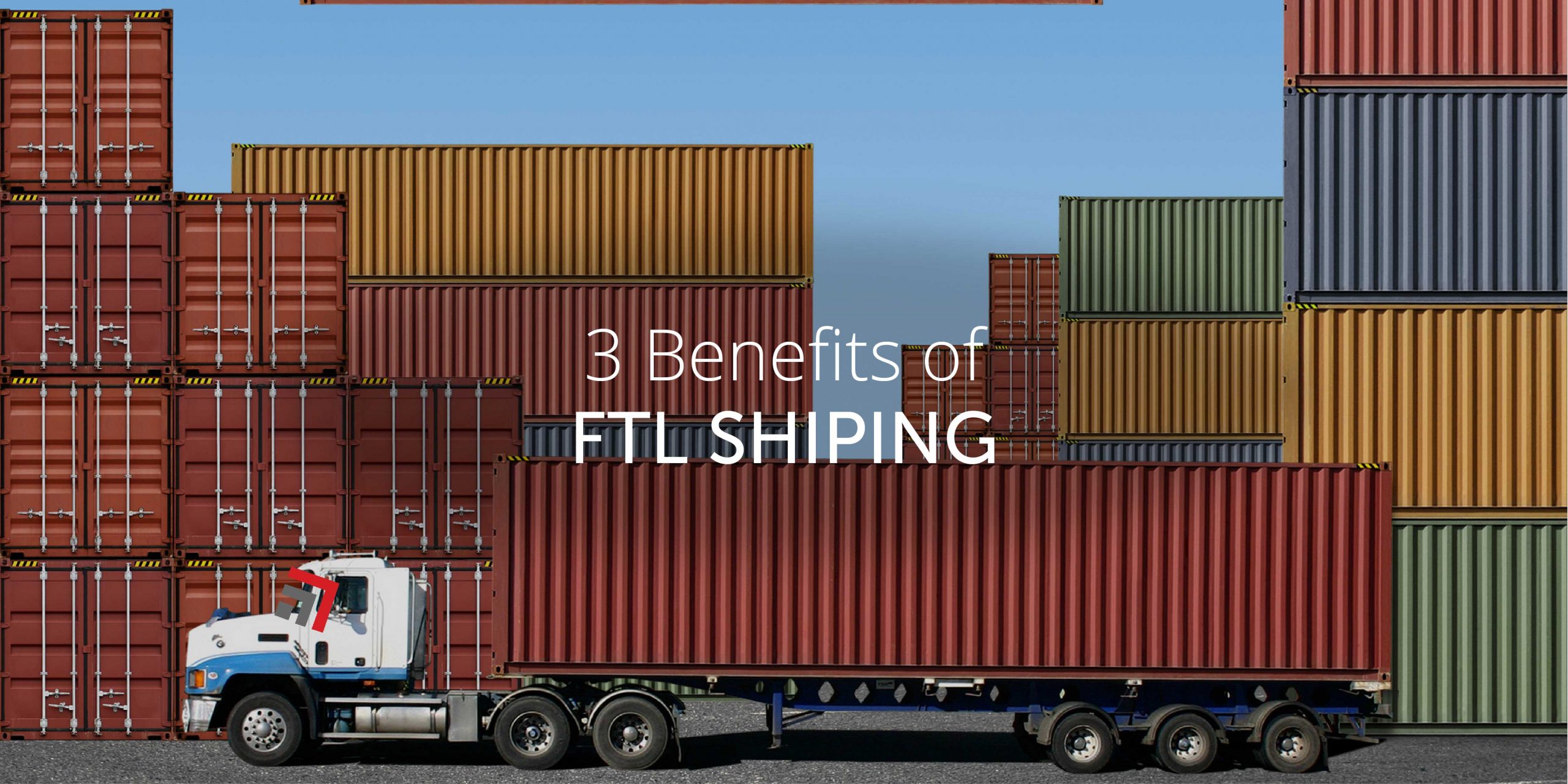Getting your goods from point A to point B is never as cut-dry simple as any of us would want it to be. Making decisions on the carrier you use, the method of shipping, the lanes you plan to use and a variety of other factors can draw the process out. Furthermore, there are so many variables beyond price that you need to worry about. The age old “quality-to-price” battle.
Benefits of FTL Shipping
In addition to price, how you package and ship your goods can be a tricky decision. Although there are multiple factors that must be decided on when shipping your products, a primary debate arises over shipping goods via FTL (Full Truckload) or LTL (Less Than Truckload). FTL (or Full Truckload) shipping has some added benefits such as speed and security, but renting a whole trailer can be expensive depending on the situation. Depending on your current and future shipping process, FTL shipping may be a good option for your company. These are some of our observations on the primary benefits of FTL shipping:
Less Damage
If you ship your cargo FTL, it will be handled significantly less times than had it been shipped LTL. With Full Truckload shipping, your cargo doesn’t need to be broken down, consolidated, and deconsolidated with others’ cargo. This lowers the chances of your freight getting damaged and relieves the headache of dealing with insurance claims. Keep in mind that it is always a good decision to invest in trucking insurance.
Speed
When you ship FTL, your freight stays on one truck for its whole trip. This means that the trucker’s only concern is getting your products to you. Eliminating all the extra steps involved in Less-Than-Truckload shipping streamlines your company’s transportation and can speed up the process exponentially. With LTL shipments, trucks need to be consolidated with other shippers’ goods and deconsolidated at docks in order to get your product where it needs to go. As stated before, this means with LTL shipping, your product is getting handled more which slows it down and makes it more prone to damage. With FTL shipping, all these additional stops and steps aren’t needed, making it a significantly faster option overall.
Best For a Variety of Shipments
If you’re shipping large items (exceeding 10,000 pounds or 12-15 cubic meters), hazardous cargo, or non-stackable cargo, FTL is the way to go. Often times, two types of hazardous cargo are not allowed to be on the same truck which translates to more delays and costs associated with shipping LTL. If you have cargo that is large, fragile, or non-stackable, LTL will give you a lot of trouble. Shippers are often wary of purchasing an FTL shipment if their goods do not fill up the volume or weight dimensions of a trailer. However, the small added expense of converting an LTL shipment to an FTL shipment is low compared to the cost of replacing your goods for damage.
Conclusion
If you’re not shipping mass amounts of goods on a frequent basis, you probably don’t resort to FTL as your primary mode of shipping. However, there are mutliple benefits of FTL shipping. First of all, your goods don’t have to be handled as frequently as they do with LTL shipping. Since there is no consolidation and deconsolidation process as exists for LTL shipments, your goods are handled less and move quicker when shipped via FTL modes. A second benefit of FTL shipping is that you don’t have to worry about product damage, or product placement for hazardous/fragile goods. When you purchase your own trailer for the line-haul, you can stack as many or little goods in whatever order you please.
If you are interested in learning more about FTL shipping and how it may benefit your company, give one of our team members a call and we would be happy to help you make a decision!



Recent Comments